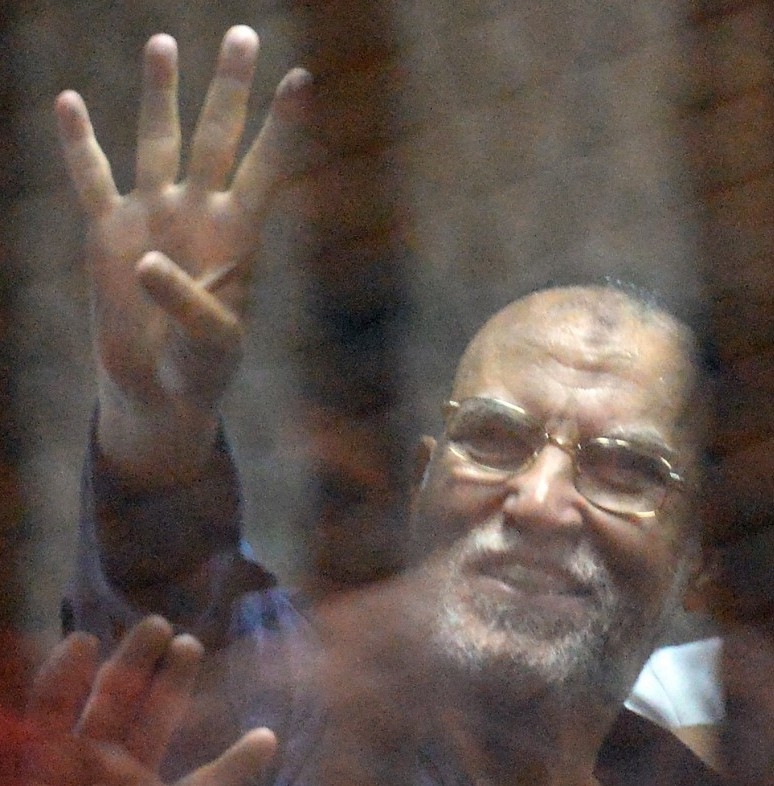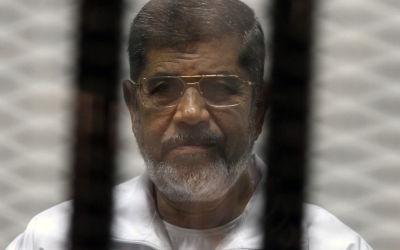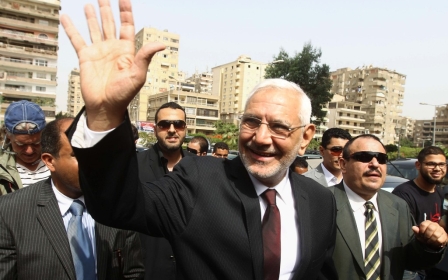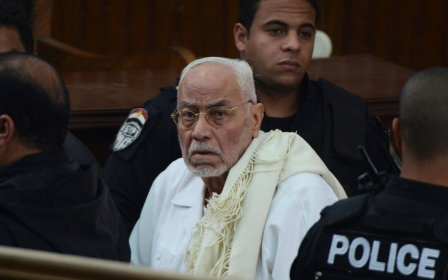Egypt: Senior Muslim Brotherhood politician Essam el-Erian dies in prison

Essam el-Erian, a senior leader in Egypt's Muslim Brotherhood and a former MP, died on Thursday in Cairo's Tora prison complex, local media reported citing sources.
Egypt's prison authorities have not yet officially confirmed the death.
Erian, 66, had not been allowed visits for the past six months due to the coronavirus lockdown, his lawyer told BBC Arabic.
A physician by profession, Erian was also the vice president of the Freedom and Justice Party, the political wing of Egypt's largest opposition movement, the Muslim Brotherhood.
He served as a member of parliament after the 2011 revolution that toppled longtime autocrat Hosni Mubarak.
Erian and other Brotherhood leaders were arrested following the 2013 military coup led by then-defence minister Abdel Fattah el-Sisi, who is now president. The coup ousted Sisi's democratically elected predecessor Mohamed Morsi, who hailed from the Brotherhood.
Morsi himself died in custody last year at the age of 67, due to what UN experts and human rights groups said was deliberate medical negligence by authorities.
Since becoming president in 2014, Sisi has led a relentless crackdown against his opponents from across the political spectrum.
Erian was among those sentenced to life imprisonment following the coup. His trial and those of other Brotherhood leaders have been condemned by rights groups as politically motivated.
Medical negligence
Erian had been held for seven years in solitary confinement at the notorious maximum-security prison Aqrab (Scorpion), part of the Tora prison complex.
In video testimony from January 2018, Erian told a judge at a courtroom that he had developed hepatitis C while in custody. He said his multiple requests to be transferred to a specialised hospital were denied by authorities.
Erian warned of the rising number of prisoners who died in jail due to the poor medical care inside the facilities.
"Hundreds are suffering slow death due to one reason: medical negligence," he said in the televised hearing.
"I will give one example of myself. I was diagnosed with hepatitis C while in prison. Doctors recommended transferring me to the liver institute for treatment, but the National Security Agency refused."
'I know from Erian's family that he had quite a few chronic illnesses that required proper hospitalisation, but the prison administration have been very intransigent about this'
- Amr Magdy, HRW
Amr Magdy, Egypt researcher at Human Rights Watch, said that Erian had been living in "near total isolation" since his imprisonment seven years ago.
"Detainees in Scorpion prison live years or months without contact with their families or lawyers," he told Middle East Eye.
"I know from Erian's family that he had quite a few chronic illnesses that required proper hospitalisation, but the prison administration have been very intransigent about this. They did not provide him with the medical care he desperately needed."
Magdy pointed out that while Erian's sudden death might have been due to "natural reasons" as pro-government media claimed, it is very likely that medical negligence had been the direct cause.
"The problem is that this is a government we can never trust. There is no independent oversight over prisons," he said.
"We know for a fact that there are hundreds of similar cases that were not investigated and no one was held accountable."
Middle East Eye delivers independent and unrivalled coverage and analysis of the Middle East, North Africa and beyond. To learn more about republishing this content and the associated fees, please fill out this form. More about MEE can be found here.





